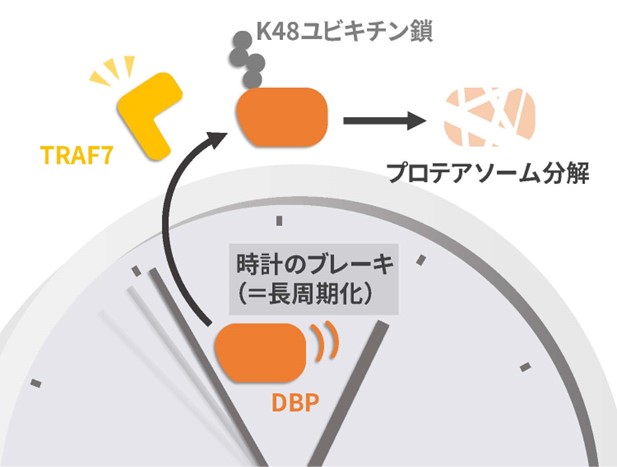DATE2024.10.17 #Press Releases
Discovery of a Degradation Regulator Involved in the 24-Hour Rhythm of Protein Content
Summary
Drs. Shusaku Masuda (Graduate Student at the time of the research, Department of Biological Sciences, School of Science, The University of Tokyo), Nobuhiro Kurabayashi (Associate Investigator, Tokyo Metropolitan Institute of Medical Science), Hikari Yoshitane (Project Leader, Tokyo Metropolitan Institute of Medical Science; Associate Professor, The University of Tokyo), Yoshitaka Fukada (Professor Emeritus, The University of Tokyo) and their colleagues have discovered a degradation regulator involved in the 24-hour rhythm of protein levels. The circadian clock regulates physiological functions in accordance with various activities during the day, such as eating and sleeping, and changes the amounts of biomolecules involved in each function according to the time of day.
In this study, we revealed that the clock protein DBP, which is important for the circadian rhythm of physiological functions, is degraded by two E2 enzymes and the E3 ligase TRAF7. These findings provide insight into how proteins accumulate toward a specific time and then decrease through degradation control, and are important for understanding the mechanisms underlying the timely regulation by the circadian clock.
The research results were published online in the American scientific journal Communications Biology on Tuesday, October 8, 2024 (Japan Standard Time).

Figure:Outline of this study
Links: Tokyo Metropolitan Institute of Medical Science(in Japanese)
Journals
-
Journal Communications Biology Title of paper


